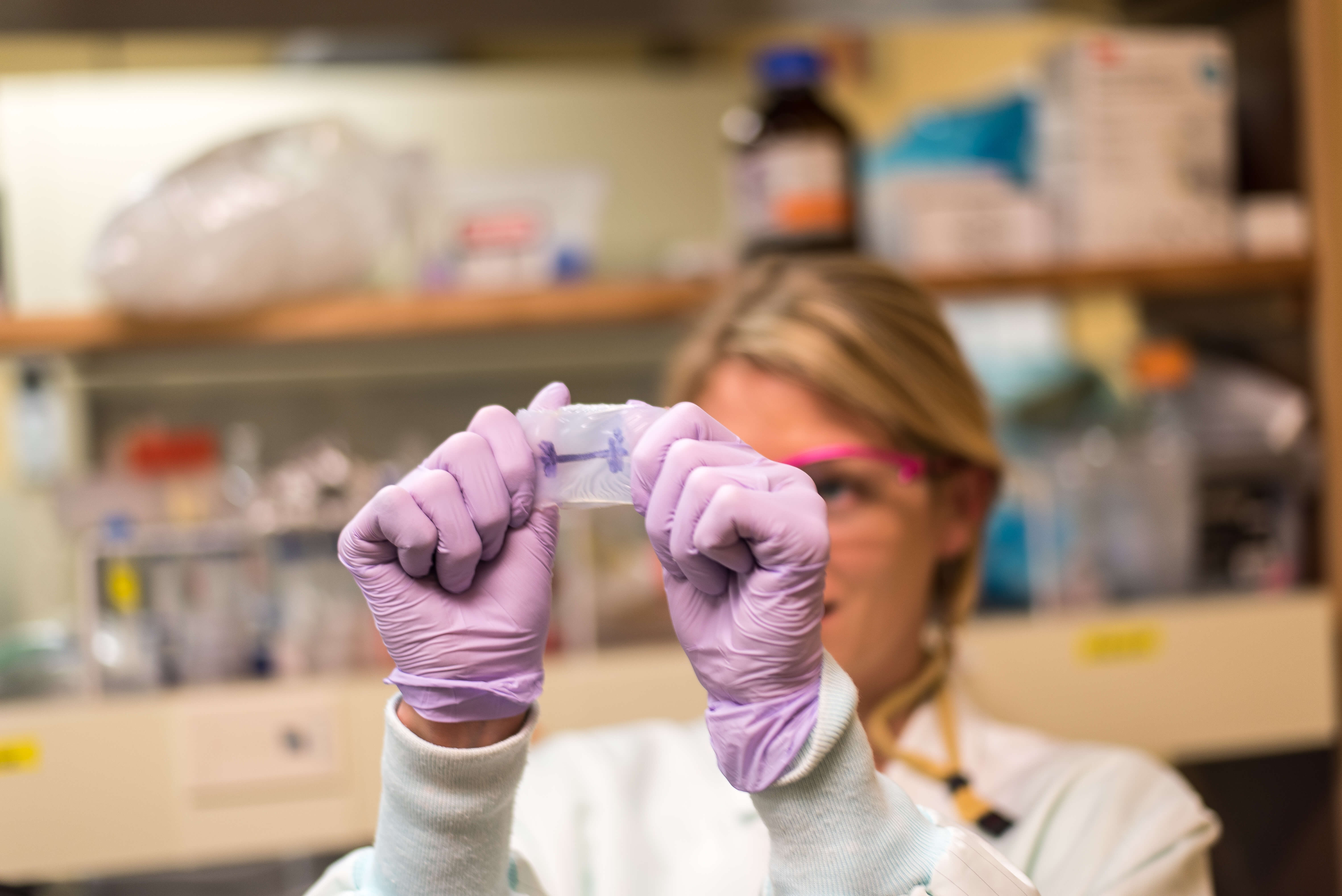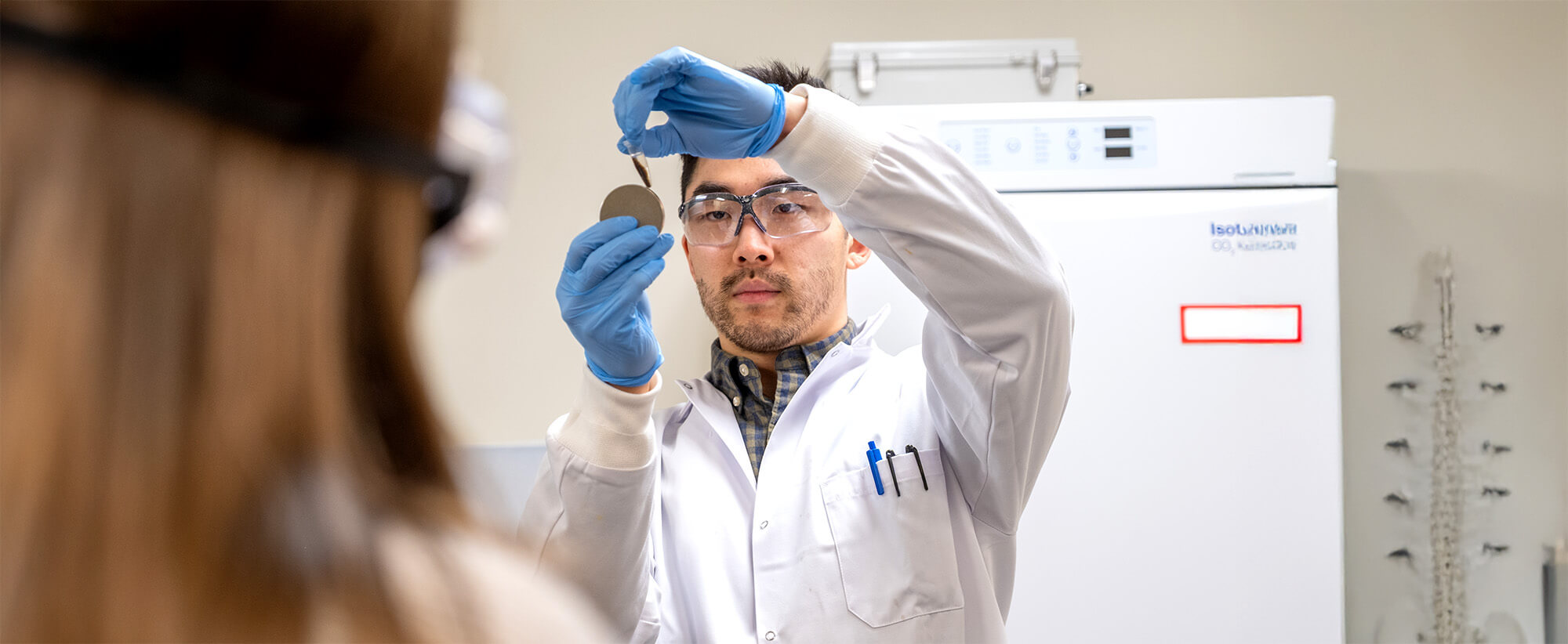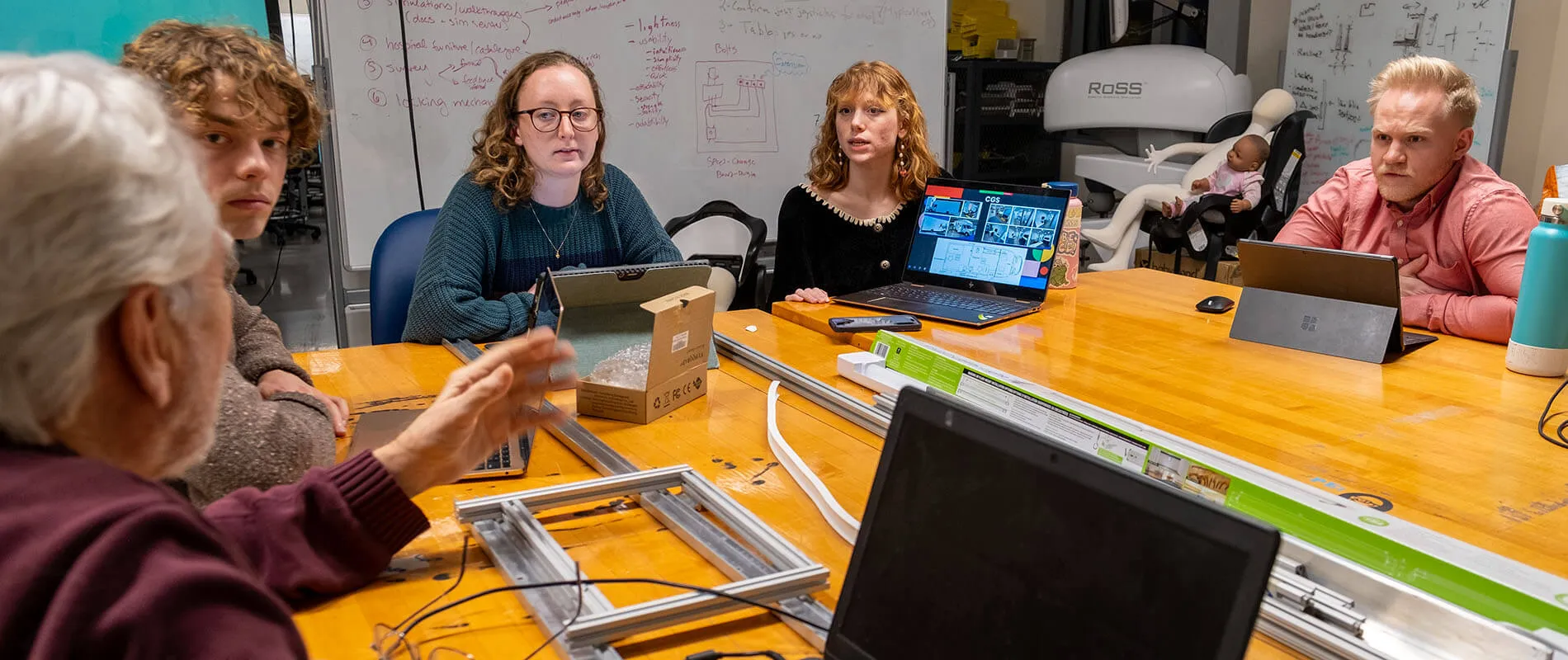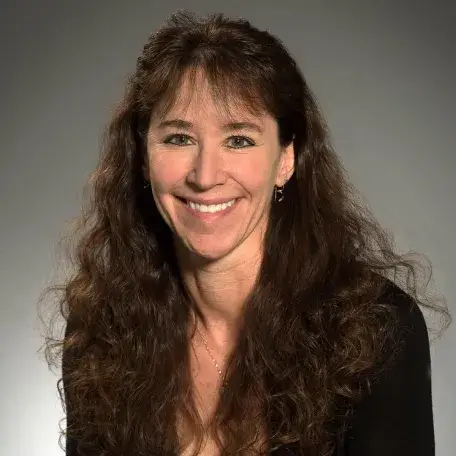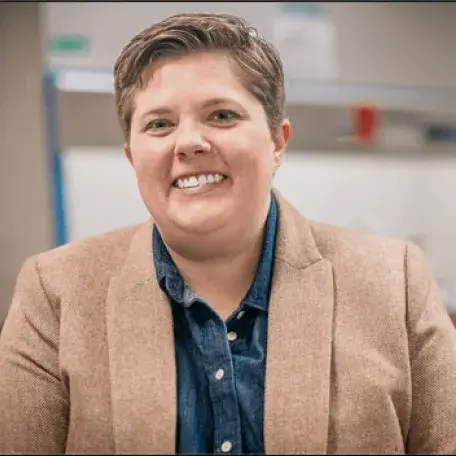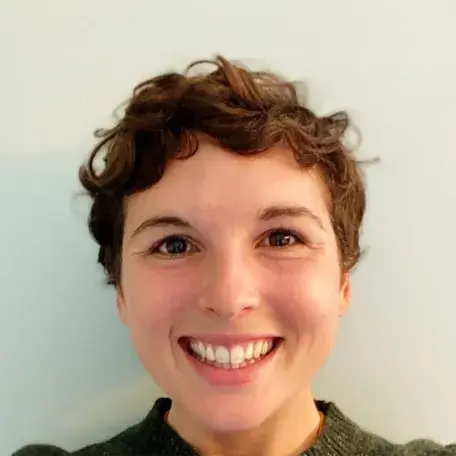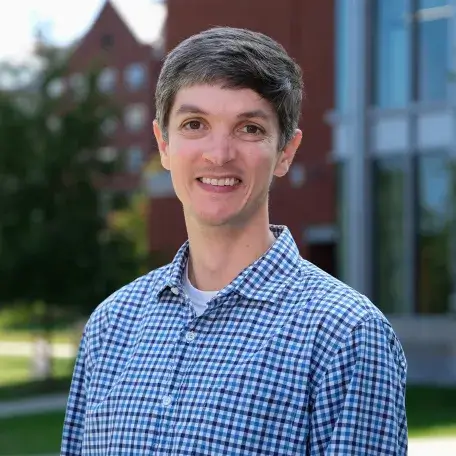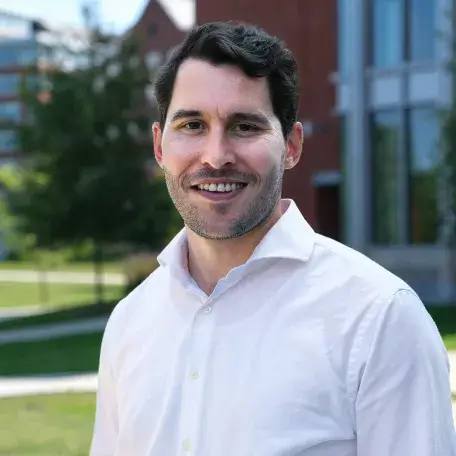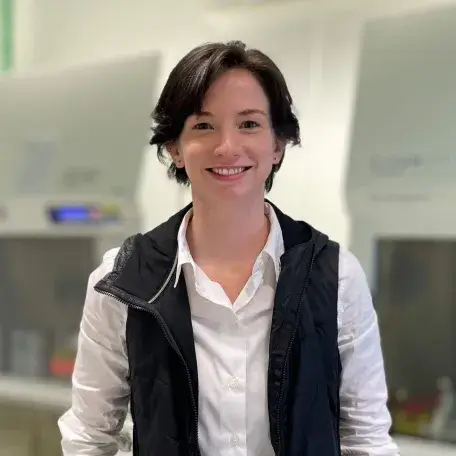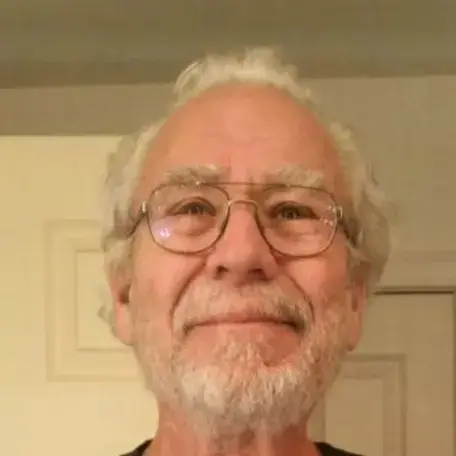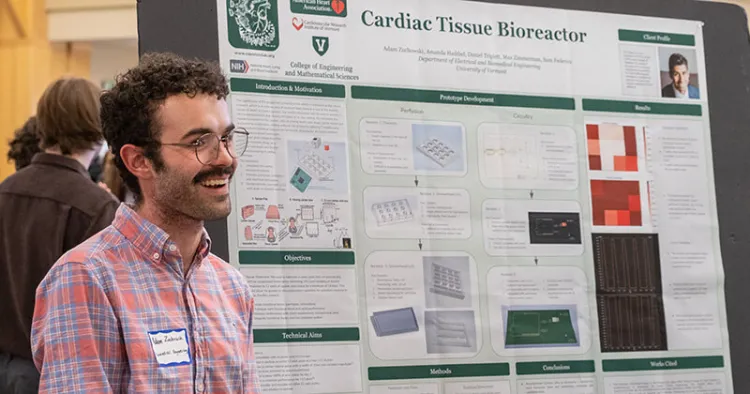
Our ABET-accredited undergraduate program in Biomedical Engineering trains engineers to work at the interface between engineering and the biomedical sciences. The curriculum is structured into three phases: Foundational, Skills, and Specialization.
In the Foundational Phase, students take courses in math and science to build a solid foundation in quantitative engineering methods and biomedical science, and to expose them to the opportunities in biomedical engineering. In the BME Skills Phase, students develop the breadth of engineering skills needed to address the multidisciplinary nature of biomedical engineering. This phase is complemented by a multi-semester design sequence. In the final three semesters, Specialization Phase, students pursue electives germane to their interests and have their Capstone Design Experience.
The B.S. in Biomedical Engineering leverages strong ties between UVM's College of Engineering & Mathematical Sciences and its Larner College of Medicine. This collaboration provides students with unique biomedical opportunities in a professional setting.
Biomedical Engineering Degrees
Biomedical Engineering Objectives & Outcomes
BME Program Educational Objectives
The educational objectives of UVM’s Biomedical Engineering program are to provide our graduates with disciplinary breadth and depth to fulfill complex professional and societal expectations by:
- pursuing careers as practicing engineers or using their program knowledge in a wide range of other professional, educational and service activities.
- assuming leadership roles and seeking continuous professional development.
- contributing to their profession and society while appreciating the importance of ethical and sustainable practices, diversity, and inclusion.
Updated February 2020
BME Student Outcomes
Student outcomes for the Biomedical Engineering Program are
Outcomes (1) through (7) as listed below:
- An ability to identify, formulate, and solve complex engineering problems by applying principles of engineering, science, and mathematics.
- An ability to apply engineering design to produce solutions that meet specified needs with consideration of public health, safety, and welfare, as well as global, cultural, social, environmental, and economic factors.
- An ability to communicate effectively with a range of audiences.
- An ability to recognize ethical and professional responsibilities in engineering situations and make informed judgments, which must consider the impact of engineering solutions in global, economic, environmental, and societal context.
- An ability to function effectively on a team whose members together provide leadership, create a collaborative and inclusive environment, establish goals, plan tasks, and meet objectives.
- An ability to develop and conduct appropriate experimentation, analyze and interpret data, and use engineering judgment to draw conclusions.
- An ability to acquire and apply new knowledge as needed, using appropriate learning strategies.
BME Undergraduate Enrollment Data (2016-2021)
Total Number of FT and PT students: 158 (2020-2021), 176 (2019-20), 136 (2018-19), 103 (2017-18), 41 (2016-17)
Number of BS Degree Graduates: 30 (2020-21)*, 23 (2019-20), 11(2018-19), 0 (2017-18), 0 (2016-17)
* 2020-2021 Graduate numbers will be updated by 9/1 to include August graduates.
All Bachelor of Science degrees in Biomedical Engineering (BSBME) are accredited by the Engineering Accreditation Commission (EAC) of ABET, https://www.abet.org. 111 Market Place, Suite 1050, Baltimore, MD 21202-4012.
Updated June 2021
BME Graduate Programs Handbook
Accreditation & Licensure
ABET Accreditation - Biomedical Engineering
The Bachelor of Science in Biomedical Engineering is accredited by the Engineering Accreditation Commission (EAC) of ABET, 111 Market Place, Suite 1050, Baltimore, MD 21202-4012.
Professional Licensure
Biomedical Engineering, Bachelor's Degree
College of Engineering and Mathematics
Department of Electrical and Biomedical Engineering
Biomedical Engineering Faculty
Assistant Professor, Department of Electrical and Biomedical Engineering
David.Bernstein@uvm.eduAssistant Professor, Department of Electrical and Biomedical Engineering
mbrasino@uvm.eduProfessor, Department of Neurological Sciences • Professor and Chair, Department of Electrical & Biomedical Engineering
Marilyn.Cipolla@uvm.eduAssociate Professor, Department of Electrical and Biomedical Engineering • Graduate Program Director
amber.doiron@uvm.eduAssistant Professor, Department of Electrical and Biomedical Engineering • Graduate Program Director, Biomedical Engineering
djangraw@uvm.eduAssistant Professor, Department of Electrical and Biomedical Engineering
kaitlin.mccreery@uvm.edu